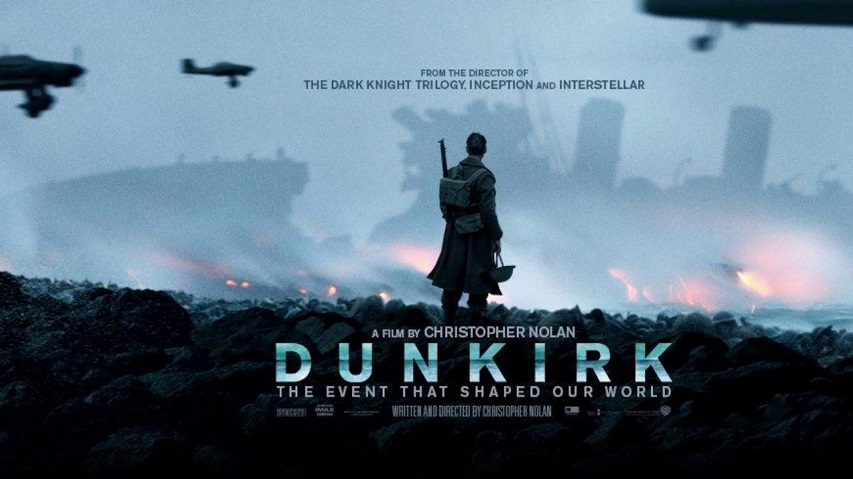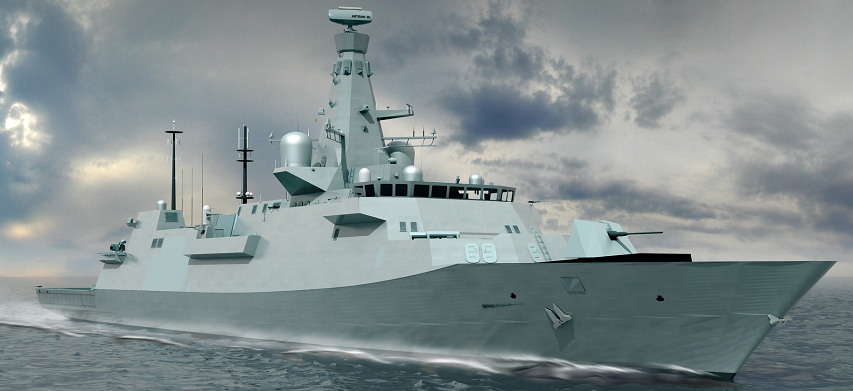Published on 20 Jul 2017
The tensions between the Russian Provisional Government, between the civilians and the Bolsheviks turn violent this week 100 years ago. Machine Guns fire into the demonstrations on the Nevsky Prospect and arrest warrants are issued for Lenin and Trosky. At the same time the preliminary bombardment for the Battle of Passchendaele begins on the Western Front.
July 21, 2017
July Days In Petrograd – Blood On The Nevsky Prospect I THE GREAT WAR Week 156
Dunkirk
Megan McArdle was very impressed with the new Christopher Nolan movie on the evacuation of Dunkirk in 1940:

I was perhaps unreasonably excited to see Dunkirk, Christopher Nolan’s new movie about the evacuation of British forces from a French beach during World War II. The historical event on which it is based is astonishing: unable to get enough warships close to the beach to load their fleeing troops, the British government mobilized a flotilla of small private craft, which ultimately helped evacuate more than 330,000 soldiers ahead of the German army. I was eager to see what one of my favorite directors would do with the story.
He did not disappoint. This nearly flawless film put me on the edge of my seat for two hours. It is the best thing I’ve seen about war since the stunning opening of Saving Private Ryan — and Nolan, bless him, is not prey to Steven Spielberg’s compulsion to mar his creations by slopping them over with speechy goo.
As with all of Nolan’s films, it’s emotionally distant from its characters. Cillian Murphy plays an officer credited only as “Shivering Soldier,” and none of the characters have much in the way of backstory or goals, other than survival. Matt Zoller Seitz calls it an “Ant Farm Picture,” a portrait of society in which individuals are almost incidental. That’s rather the point.
A lesser director would have given in to the temptation to make this a story about the righteous crusade against the Germans, men fighting other men, but Nolan shows us a world in which the enemy is a plane, a torpedo, the water and the flying bullets, and men are reduced to little more than their rage to live.
The result is less a war film than a disaster movie. An exquisite disaster movie. I didn’t expect such a vivid and visceral illustration of how quickly a ship can sink, or just how difficult it is to hit a target in the sky. I left the theater almost too overwhelmed to talk.
Having recovered, I began to wonder why we can’t have more pictures like Dunkirk. The easy answer is, of course, that there is only one Christopher Nolan, and only so many people willing to give him $150 million to spend putting thousands of extras and some World War II-era ordnance onto a French beach. But the easy answer is incomplete.
I haven’t seen the movie, but I’ve been impressed with the reviews I’ve seen so far (except the ludicrous “it doesn’t have any women or POC characters in lead roles” criticism from historical illiterates).
Behind the Scenes of Naval Legends – HMCS Haida
Published on 19 Jul 2017
Curious about how the Naval Legends episodes are made? Want to know how the beauty shots are made? Then let me take you behind the scenes of Naval Legends HMCS Haida.
Filmed with the permission of Parks Canada, at HMCS Haida National Historic Site.
Special thanks to Nicholas Moran, WarGaming America.
HMS Frigatey McFrigateface gets a new name
At The Register, Gareth Corfield reports that the first Type 26 frigate has been given the name HMS Glasgow:

Type 26 Global Combat Ship – DSEi 2013 2
BAE Systems has unveiled the latest imagery of the Type 26 Global Combat Ship, which shows the maturity of the design and provides an insight into how it will look.
(BAE Systems, via Flickr)
The first of the Royal Navy’s new Type 26 frigates has been named HMS Glasgow, recycling the name for the fourth time in the last 100 years.
“The name Glasgow brings with it a string of battle honours. As one of the world’s most capable anti-submarine frigates, the Type 26 will carry the Royal Navy’s tradition of victory far into the future,” said the First Sea Lord, Admiral Lord Philip Jones, naming the as-yet-unbuilt warship this morning.
All future Type 26s will be named after cities, making them the City class – a step up from when the names were previously used as part of the Town class of yore. Numerous wags on Twitter suggested that the ship would be named HMS Frigatey McFrigateface, in a nod to the Natural Environment Research Council’s epic public naming contest blunder.
“This is great news for the workers on the Clyde: first-in-class builds are always special, but I know from visiting BAE Systems earlier this year that they are raring to go on a world-class project that will showcase their skills and the ‘Clyde built’ brand for a new generation,” Martin Docherty-Hughes, the Scottish Nationalist Party MP for West Dumbartonshire, told The Register.
The Type 26s are the future of British sea power, being intended to replace the venerable old Type 23 frigates that make up the backbone of the Navy’s warfighting fleet. In British service, frigates are broadly equipped to fight other surface warships and as anti-submarine vessels, a particular British speciality.
[…]
Naming warships is an inherently political process. The Royal Navy has, particularly in the latter part of the 20th century, tried to pick names that guarantee it support from the important parts of society – see the Hunt-class mine countermeasure vessels, named after the packs of well-off Hooray Henrys who spend their free time galloping around Blighty’s fields in search of foxes. More recently, a Cold War-era frigate was named HMS London, which worked well until she was flogged off to Romania in 2002, complete with a few crates of unwanted L85A1 rifles. Type 23 frigate HMS Westminster continues flying the flag for the RN near the corridors of power, courtesy of a feature wall in Westminster Tube station.
The name Glasgow was officially bestowed to recognise the shipbuilding heritage of the Clyde area. In reality, it’s more of a sop to try and damp down the fires of Scottish nationalism; apparently, patriotic names are all that now stands between the United Kingdom and its breakup.
Chisel Tricks for Hand-Cut Joinery
Published on 2 Oct 2014
Period furniture maker Philip C. Lowe demonstrates the right way to use your bench chisel when paring joinery and mortising for hinges.
QotD: Anachronistic “Regency” romances
Which brings us to a discussion about romances, yesterday. Like apparently most people who read Regencies I’ve become aware of a tendency for them to read more and more like modern romances than like something set in that time.
Someone nailed it for me by pointing out that female characters have been getting more modern. For instance, they will do things like not want to marry UNTIL they have sexual experience, so they’ll be engaged and go out to find someone to sleep with them: in a time without either contraceptives or antibiotics and in a time when a unwed pregnancy would ruin not only the woman but all her relatives.
Or they rebel against being the one who was supposed to marry to make the family fortunes. I’m not saying a woman might not wish to marry someone else rather than make the family fortunes, but it would present in her own mind not as resentment to lifting the family out of debt, but as “I’m madly in love with the stable boy.” or whatever. And if a woman was thoroughly opposed to [being] married, it often manifested (at least in Catholic countries, granted, not England) as a “vocation.” What it didn’t manifest as was “I want to pursue a career.” Women married, or if they were unmarried stayed around the house helping with the nephews and the running of the house. If they had the means they might set up household with a companion. But only the poor worked, (even for men “having to” work was a downcheck on status.) If you were a governess or a nurse, it wasn’t for a “career” but because you were desperate.
Oh, and please save me from all the women running philanthropic organizations. While there were of course a number of these run by women, it wasn’t every other woman as seems to be in today’s regency romances. And charities for unmarried mothers would be very heavy on the preaching and getting them to give the baby up for adoption. Not telling them they’ve done nothing wrong and “affirming” their choices. Again, no contraceptives, no antibiotics. Sex and its consequences were serious business PARTICULARLY for women who make more of an investment in reproduction.
Sarah A. Hoyt, “What Has Gone Before Us”, According to Hoyt, 2015-08-03.



